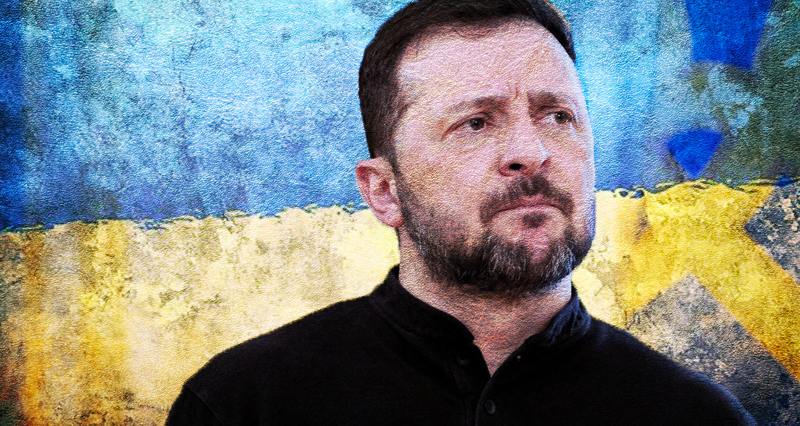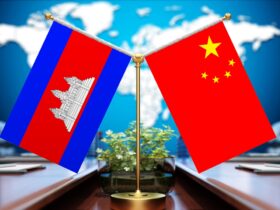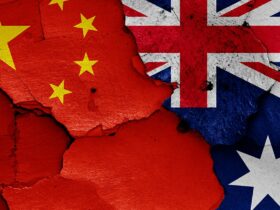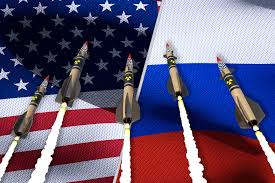Interview to Sputnik Türkiye.
Interview to Sputnik Türkiye.
UWI author and political scientist Onur Sinan Güzaltan shared his analysis with Sputnik Türkiye on the Russia–Ukraine negotiations held in Istanbul. The interview also included Europe’s stance on the matter, and the recent phone call between U.S. President Donald Trump and Russian President Vladimir Putin.
We present the interview translating into English.
Güzaltan stated that the Russian Federation proposed to resume negotiations in Istanbul as a continuation of the 2022 talks, while Ukraine took a stance that avoided any concrete steps:
“Firstly, I don’t believe that even if we see ceasefires or peace agreements in the near future, they will hold in the long run. Why was the meeting held in Istanbul? The Russian side has made statements about this. In 2022, Russia and Ukraine held talks in Istanbul. These talks didn’t continue due to various provocations. Russia’s proposal to meet in Istanbul was to pick up where they left off in 2022. The US, Russia, Ukraine, and the host country Türkiye were involved in the negotiations. How successful the talks were is debatable. Apart from a prisoner exchange, we saw no concrete outcome.”
“Zelenskyy is the leader of a defeated country”
Highlighting that Zelenskyy is the leader of a defeated country, Güzaltan said the Ukrainian president is trying to conduct psychological warfare and protect his position through theatrics:
“Zelenskyy is the leader of a defeated country. He lost the war, a significant part of Ukraine’s territory and key strategic areas. The support behind him is crumbling. The US is showing signs of stepping back from Ukraine. There are cracks within Europe as well. So Zelensky’s main objective now is to buy time. His political survival depends on the continuation of this conflict. The moment peace is achieved, it will be very difficult for him and the other wartime leaders around him to stay in power. He is resorting to psychological tactics like theatrics. He makes statements like, ‘I came to Istanbul, now let Putin come too and let’s meet’ that don’t align with diplomatic norms. Remember his meeting with Trump at the White House. He got scolded. Zelenskyy has lost credibility.
When the US put on pressure, the Ukrainian side was forced to sit at the negotiation table with Russia. But they are dragging heels. They’re seeking support from the EU. And many European governments like France, Poland, and Germany remain eager to support Ukraine.”
“Every time Russia and Ukraine showed a will for peace, provocations came from the West”
According to Onur Sinan Güzaltan, whenever Russia and Ukraine showed signs of pursuing peace, we witnessed Western-backed provocations to prolong the conflict. Güzaltan emphasized that the governments in the UK, France, and Germany need the war to maintain their power. Yet, parties across Europe that advocate for normalization with Russia are on the rise:
“In fact, the situation of European governments, mainly France, Germany, and Poland, is like that of Zelenskyy. Alongside the US, they imposed harsh political, economic, and cultural sanctions on Russia from 2022. But this turned out to be a boomerang. Now Europe is economically and politically fragmented.
In many European countries, parties advocating normalization with Russia are now in second place and challenging the ruling governments. We recently saw an example in Romania. Le Pen continues to rise in France, and the AfD in Germany. Also, these governments can’t change their course. Macron in France is the clearest example of this. That’s why they have to insist on prolonging the crisis in Ukraine and are steering Kyiv in that direction. Now, Trump back in power in the US. He advocates for renewing diplomatic ties with Russia. With that, the European governments became isolated than ever. In order to hold onto power and navigate the crises they’re caught in; they keep fueling anti-Russian sentiment across the continent. They’re pushing the propaganda that Russia could invade Europe at any moment.
Every time Russia and Ukraine sit down at the negotiation table, we saw new provocations coming from the West, like the delivery of long-range missiles to Ukraine or the terrorist attack in Moscow. If you lay out the dates side by side, you will see that. In that sense, the coming period is critical.
“Trump’s policy to isolate China by normalizing with Russia has failed”
Güzaltan assessed US President Trump’s approach to Russia, arguing that Trump’s attempt to normalize relations with Moscow in order to isolate China has failed:
“Trump is a pragmatic politician. At the start of his second presidential term, he claimed he could resolve the Ukraine issue in a very short time. He made similar promises about Palestine as well. But he couldn’t. Sure, he has made attempts and taken some steps. But he couldn’t achieve what he promised for.
Trump aimed to normalize relations with Russia in order to isolate China. He is not a friend to Russia. After all, Trump is the president of a country that is in direct competition with Russia. He has specific interests in these regions like maintaining dominance over Europe and access to Ukrainian mineral resources. But what we’re seeing now is that his strategy of pushing Russia away from China has failed. Look at the recent Victory Day celebrations on May 9 in Moscow. The guest of honor was Chinese leader Xi Jinping. Once again Xi and Putin showed how close their relations is here. They had lengthy talks. In fact, Russia’s proposal to resume negotiations in Istanbul came right after those talks with China. In the joint statement by Russian and Chinese delegations, it was emphasized that the “root causes” of the Ukraine conflict must be addressed.
“Root causes”
Putin also used this same phrase, “root causes”, in his statement after the phone call with Trump. This shows us something important. From the beginning, Russia has had certain goals in Ukraine: preventing NATO membership, removing the Nazi-leaning leadership, and so on. These goals were also recognized in the talks between China and Russia. Here is where Trump’s plan is falling apart. The longer this war drags on, the closer Russia and China grow.
Recently, the US and the UK signed a large trade agreement. That’s significant too. Trump had been supporting opposition parties in the UK, but he changed his policy and reached an agreement with the current government. So, on one hand, Trump is extending a hand to Russia, but since he doesn’t know what will come of that, he’s trying to keep his options open in Europe, especially through the UK.
Everyone is well aware of the aggressive policies of the US for decades. So Russia wants to remain ready for any scenarios. They are strengthening bilateral ties, reinforcing their military capabilities, and preparing for new economic sanctions. There’s too much uncertainty right now to make any firm predictions. Both Trump and Putin made optimistic statements after their last call. But I don’t believe we’ll see a lasting peace between Russia and Ukraine.”
“The Russian people clearly see the West’s role in Ukraine”
Drawing from his own experience, Güzaltan said that the Russian people clearly see the West’s role in Ukraine. He also emphasized Russia’s strong institutions and tradition of statehood:
“I’ve been in Moscow since the beginning of the war. I’ve witnessed firsthand how people reacted, how the situation, society, and politics have evolved. For one thing: Russians still carry the memory of the 1990s. They lived through the collapse of the Soviet Union in a harsh way. Their country was torn apart, the economy, society, and military were in ruins. That experience is still fresh in people’s minds.
Then came Putin, and with him, a period of recovery and rebuilding. Russians don’t want to lose what they have regained. Their current standard of living isn’t bad at all compared to Europe, from education and healthcare to food and street security. They have a good infrastructure legacy from the Soviet era.
Russians see that the war in Ukraine isn’t just about Ukraine. They see the West is behind it, with the goal of pushing Russia back into the 1990s. That’s why the majority of people stand behind the government.
Russia is a country with a tradition of statehood. There was the Tsarist era, then the Soviet era—and through it all, they’ve maintained strong institutions and their own methods. Few countries have those.
Of course, there are dissenting voices. But the majority of the people supports the government. Those who expect this to change anytime soon are mistaken. That’s highly unlikely. Russians are aware that if they take a step back now, the West could potentially push all the way into Moscow.”

















Leave a Reply